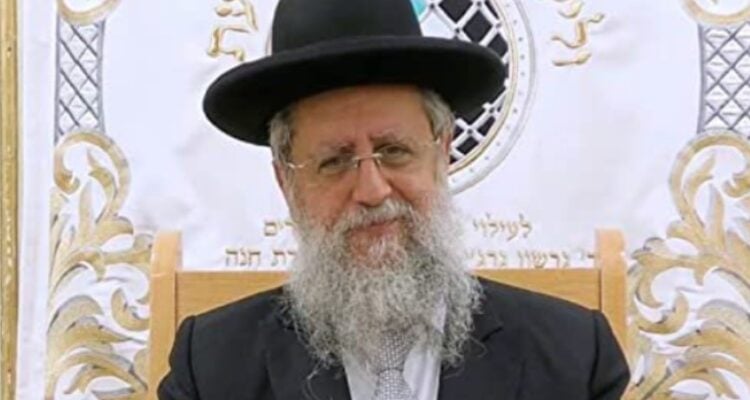Halevi and Bar, both vying to replace Ashkenazi Chief Rabbi David Lau, currently serve as the Chief Ashkenazi Rabbis of Petah Tikva and Netanya respectively.
By Pesach Benson, TPS
Israel selected a Sephardi Chief Rabbis on Sunday night, ending a nearly three-month vacancy in the position, but failed to elect an Ashkenazi Chief Rabbi.
The members of an assembly of 150 rabbinical figures, Knesset members, and local officials meeting in Jerusalem voted for Rabbi David Yosef, who teaches in Jerusalem, to succeed his brother, Rabbi David Yosef.
Their faher, Rabbi Ovadia Yosef, held the same position from 1973-1983.
However, the assembly was unable to elect a Chief Ashkenazi Rabbi. From a field of five candidates, Rabbis Micha Halevi and Kalman Bar both secured 40 votes each, forcing a run-off vote.
Halevi and Bar, both vying to replace Ashkenazi Chief Rabbi David Lau, currently serve as the Chief Ashkenazi Rabbis of Petah Tikva and Netanya respectively.
It wasn’t immediately clear why the run-off could not be held immediately. No date was set for the second round of voting, but it is widely believed the run-off will take place about one week after Rosh HaShanah, the Jewish New Year.
The holiday begins on Wednesday at sundown.
The former Chief Rabbis stepped down from their positions on July 1 when their 10-year terms expired. It was the first time the positions were vacant.
The Chief Rabbinate has jurisdiction over issues of personal status, such as marriage, divorce, conversions, as well as burials, kosher certification, holy sites, rabbinical courts, religious seminaries and ritual baths.
The Chief Rabbis often represent Israel abroad.
Religious affairs and issues of personal status such as marriage, divorce and conversion are determined by leaders of Israel’s recognized religious communities — Jewish, Muslim and Druze, as well as 10 Christian denominations.
By law, elections for Chief Rabbis are supposed to be elected at least 21 days before the end of the previous rabbis’ term.
A vote was originally supposed to be held in August 2023. But the Knesset postponed the vote, at the request of Religious Affairs Minister Michael Malkieli who argued that the timing would interfere with municipal elections scheduled for October 31. Critics accused Malkieli of trying to get individuals onto the assembly with more favorable views for certain candidates.
But municipal elections were postponed to February when war with Hamas broke out. In August, the High Court of Justice ordered the assembly to meet by the end of September.
Ten of the assembly’s 150 members were barred from voting because they were related to candidates, raising concerns for nepotism.
Israel has two chief rabbis because Ashkenazi and Sephardi Jews have distinct customs and interpretations of Jewish law. Ashkenazi Jews are primarily from Eastern and Central Europe while Sephardi Jews trace their roots to Spain, Portugal, North Africa, and the Middle East.





